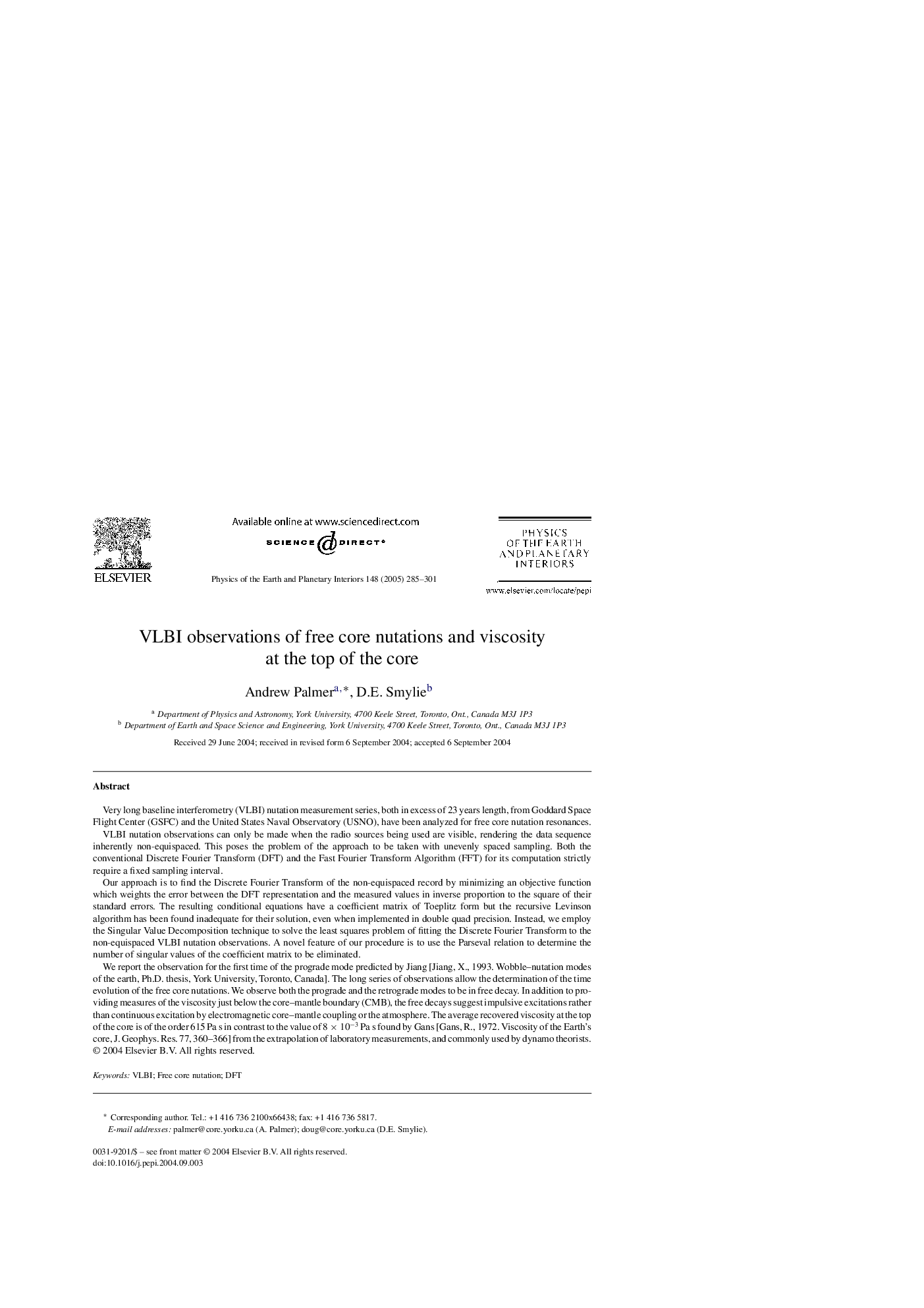| Article ID | Journal | Published Year | Pages | File Type |
|---|---|---|---|---|
| 10121387 | Physics of the Earth and Planetary Interiors | 2005 | 17 Pages |
Abstract
We report the observation for the first time of the prograde mode predicted by Jiang [Jiang, X., 1993. Wobble-nutation modes of the earth, Ph.D. thesis, York University, Toronto, Canada]. The long series of observations allow the determination of the time evolution of the free core nutations. We observe both the prograde and the retrograde modes to be in free decay. In addition to providing measures of the viscosity just below the core-mantle boundary (CMB), the free decays suggest impulsive excitations rather than continuous excitation by electromagnetic core-mantle coupling or the atmosphere. The average recovered viscosity at the top of the core is of the order 615âPaâs in contrast to the value of 8Ã10â3âPaâs found by Gans [Gans, R., 1972. Viscosity of the Earth's core, J. Geophys. Res. 77, 360-366] from the extrapolation of laboratory measurements, and commonly used by dynamo theorists.
Keywords
Related Topics
Physical Sciences and Engineering
Earth and Planetary Sciences
Geophysics
Authors
Andrew Palmer, D.E. Smylie,
